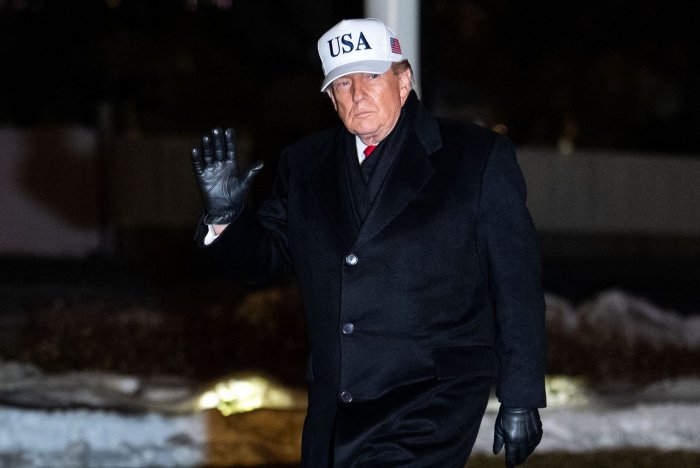Tom Homan: ICE ‘not surrendering president’s’ immigration mission in Minnesota
Jan. 29 (UPI) — White House border czar Tom Homan says federal agents will continue so-called targeted operations in Minneapolis during a news conference on Thursday.
Homan added that the focus of these targeted operations will be “criminal aliens” and threats to public and national safety. He has also directed federal agents to prepare a drawdown plan for Minneapolis but clarified that the administration will not stop with detainments and deportations.
Homan added that decreasing the number of federal agents on Minneapolis’ streets will require the local government and law enforcement entities to cooperate with the federal government to identify and detain immigrants.
“We will conduct targeted enforcement operations. What we’ve done for decades,” Homan said. “With a prioritization on public safety threats. We are not surrendering the president’s mission on immigration enforcement. Prioritization of criminal aliens does not mean we forget about everybody else. That’s just ridiculous.”
Homan took the reins of President Donald Trump‘s Immigration and Customs Enforcement operation in Minneapolis earlier this week. Before his arrival, federal agents had detained several children from an area school district.
Minnesota Gov. Tim Walz, Minneapolis Mayor Jacob Frey and Minnesota Attorney General Keith Ellison have met with Homan this week.
Homan said he “did not agree with everything” the local officials have said, but they did acknowledge ICE is a congressionally approved agency.
“What we did agree on is the community’s safety is paramount,” Homan said. “What we did agree upon is not to release public safety risks back into the community when they could be lawfully transferred to ICE.”
The Minnesota Department of Corrections has been working with ICE to identify and remove immigrants with criminal records, Homan added. He went on to clarify that he was referring to people who were already detained in the Minnesota prison system.
In regards to the fatal shootings of two Minneapolis-area residents Renee Good and Alex Pretti, both 37 years old, Homan said he will not comment or share his personal opinion. He only acknowledged that the federal operation in the city has not been “perfect” and he and Trump “have recognized that certain improvements could and should be made.”
Homan referred to anti-ICE protesters as “agitators,” and asked local officials to “tone down the dangerous rhetoric” and work with federal agents who are “performing their duties in a challenging environment.”
“They’re trying to do it with professionalism,” Homan said. “If they don’t, they’ll be dealt with. Like any other federal agency, we have standards of conduct.”
Homan later blamed the increase of federal agents in Minneapolis on “rhetoric” directed towards agents and the immigration operation.
“I said in March if the rhetoric didn’t stop there was going to be bloodshed,” Homan said. “And there has been. I wish I wasn’t right.”
Frey on Thursday acknowledged participating in “good and productive meetings” with President Donald Trump and Homan, but cautioned that “I will believe it when I see it” regarding improvements in immigration enforcement tactics in Minneapolis.
“They have talked about drawing down the numbers in terms of federal agents — ICE and Border Patrol — in Minneapolis, and that is essential,” Frey told media.
“The reality is we need Operation Metro Surge to end,” he said, adding that the operation did not make the city safer or reduce chaos.
He called the federal law enforcement effort an “invasion” of the city and said that he expects the “conduct to immediately change,” but did not address the conduct of protesters.

